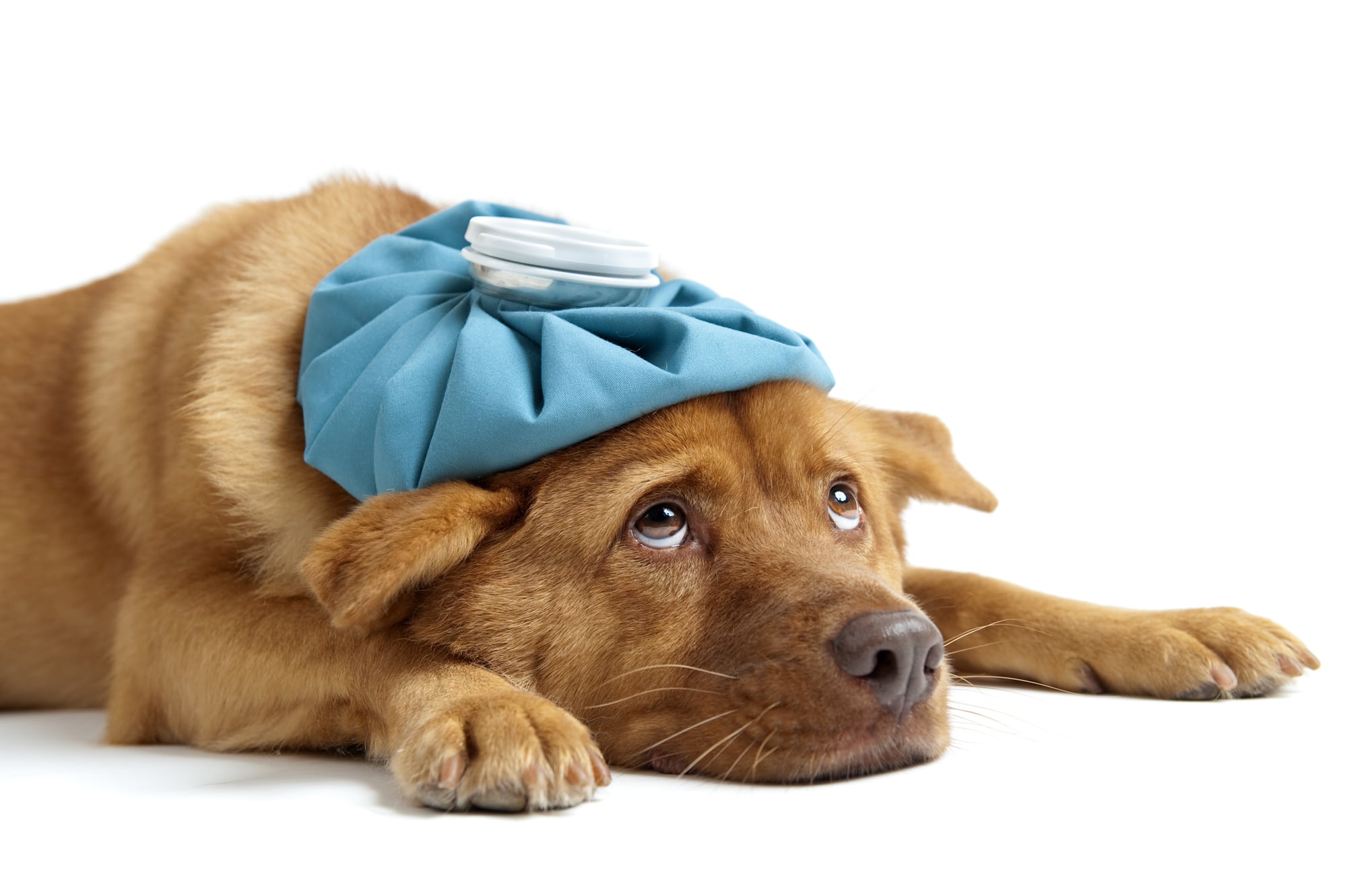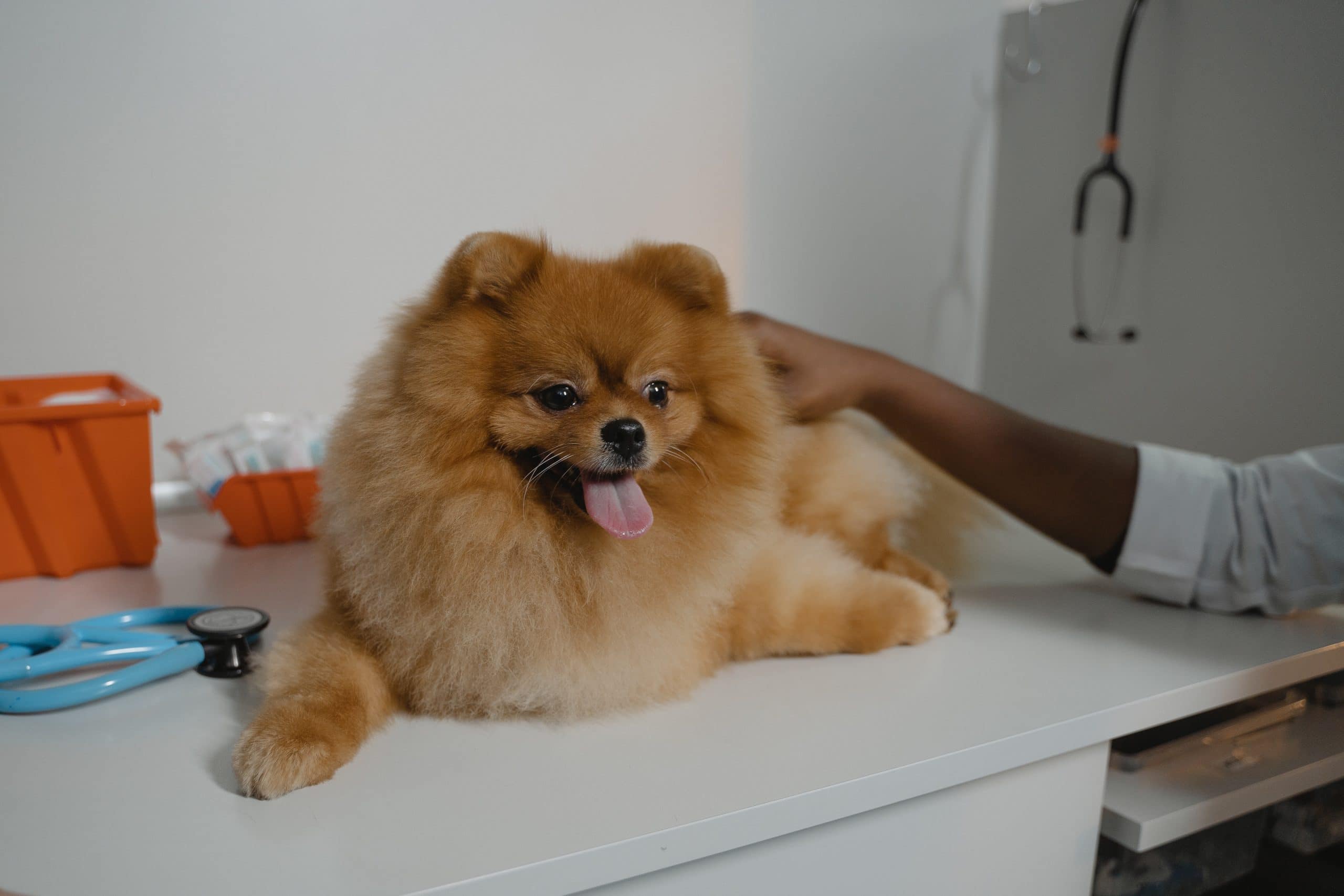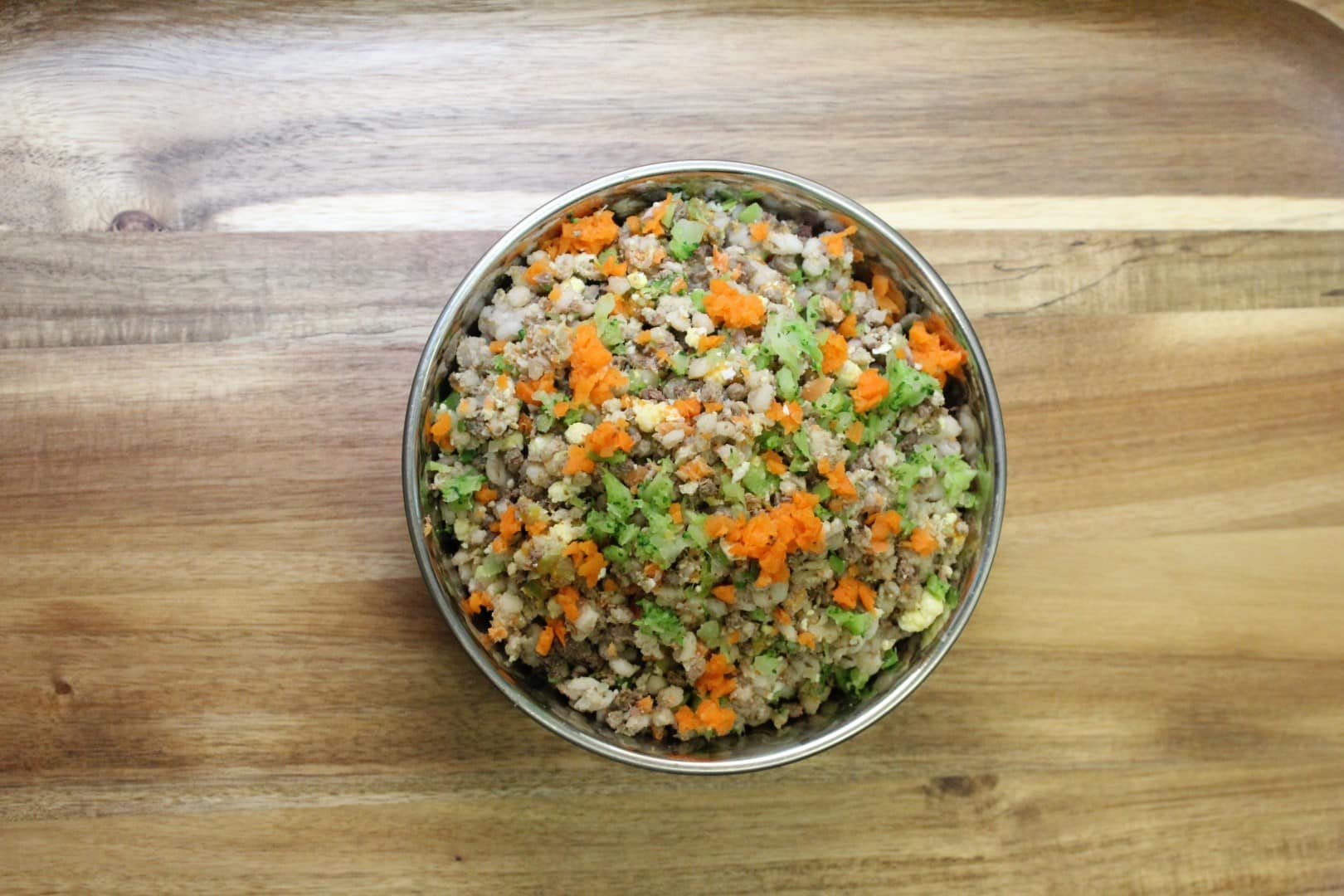We all hate it when our dogs feel sick.
Here are some common causes for diarrhea in dogs and how you can keep your pet healthy.
Every dog gets sick from time to time. But some dogs are so happy-go-lucky you’d never know there was anything wrong.
In cases like this, you have to keep a close eye on your dog’s daily behavior so you can spot any abnormal symptoms. For some dogs, the first (or even only) signal that something is off is in their stool.
There are many potential causes for diarrhea in dogs. In this article, we’ll go over a few of them and talk about how to treat short- and long-term bouts of diarrhea to keep your pet happy and healthy.
Common Causes For Diarrhea in Dogs
Diarrhea is a symptom, not an illness. If your dog has diarrhea or loose stools, you will want to pinpoint the cause of the issue so you can treat it.
Here are some of the most common causes behind diarrhea in dogs.
“Garbage Gut”
Dogs are known for their…well, “robust” appetites. Most dogs would think nothing of nosing through the trash in search of a snack. But this can have some rather unpleasant side effects.
If your dog consumes something that has spoiled or been tainted with bacteria, they could develop garbage toxicosis, known among veterinarians as “garbage gut.” Symptoms closely resemble food poisoning in humans: vomiting, diarrhea, lethargy, and lack of appetite.
Garbage gut can strike any time your dog eats something they shouldn’t: spoiled food, poisonous substances, dead animals (yuck!), or even a foreign object.
Food Allergy or Intolerance
Occasionally, food allergies or intolerances can manifest as itchy skin, but another common symptom is diarrhea.
Your dog’s vet may recommend an elimination diet to narrow down the ingredient that is causing the issue. The good news is that, once you have discovered what your pet is allergic to, you can solve their symptoms easily.
 Illness
Illness
Diarrhea can also come from an acute or chronic illness.
Parasites (such as roundworms) are known to cause diarrhea in dogs. If your pet has spent any time around other dogs, they may have picked up a virus or bacteria. Canine coronavirus, for example, was around long before 2019 and is primarily an intestinal infection.
Chronic conditions—such as colitis and kidney disease—can cause diarrhea as well.
Medication
Has your dog been on a course of antibiotics recently? Expect some diarrhea as a result.
While antibiotics are very good at killing pathogens, they are not very good at distinguishing between those that are harmful and those that are beneficial. Without their usual microbiome, your dog may take a few extra trips to the backyard.
Stress
They might not technically “work like a dog,” but dogs can go through stressful periods in their lives.
A change in their living situation, death of an owner or another pet, introduction of a new family member (human or otherwise!), or anxiety may cause bouts of stress-induced diarrhea.
Change In Diet
Your dog’s microbiome—the beneficial bacteria living in their gut—has a huge impact on their health…and their microbiome is directly connected to their diet.
Anytime you suddenly change your dog’s food, that microbiome is disrupted. While some dogs are able to sail through a food transition with hardly a hiccup in their demeanor, others may experience some diarrhea as their gastrointestinal system gets used to the new food.
Treating Diarrhea in Dogs
Before you try any home remedies, call your dog’s vet to rule out the more serious issues. (If your dog swallowed your keys, no amount of Googling can help you!)
If the vet isn’t too concerned, however, s/he may suggest feeding your dog boiled chicken and rice (with no seasonings). This combo is not only easy to digest, it also acts as a binder to “firm up” their stools, while still providing them with decent nutrition.
Diarrhea also brings another concern: dehydration.
Keep your pet hydrated by offering water, Pedialyte, low sodium chicken broth, rice water, or even ice cubes.
Chronic Digestive Issues
A short-term stomach bug is one thing, but what if your dog just has a sensitive stomach?
At Rick’s Dog Deli, we believe the best path to maximum health and wellness is an ancestral diet (think of it like Paleo, but for dogs).
For millennia, dogs have been eating exactly what humans have been eating. (The first commercial pet food wasn’t advertised until 1860!) As different breeds were developed around the world, these dogs ate what was common to the region.
By feeding your dog the ingredients they are biologically adapted to eating, you can prevent a lot of health problems, including stomach upset and diarrhea.
In our experience, it’s not that dogs have “sensitive stomachs.” Rather, they have been eating sub-par ingredients from questionable sources that have been contaminated with harmful substances.
At Rick’s Dog Deli, each of our recipes contains only 100% fresh, natural, USDA-inspected ingredients, with no fillers or preservatives. Our GI Support is specially made for dogs with sensitive tummies!
How to Introduce a New Food
Notice that one of the common causes for diarrhea in dogs was a change in diet? That may be true for any dog and any food.
Even when switching your dog to a whole, natural diet, such as Rick’s Dog Deli, we never recommend that you quit their old diet “cold turkey,” as this can cause diarrhea and other symptoms.
Start out by feeding your dog a 50/50 mixture of the old food mixed with the new for one week. Expect some loose stools during this stage. Your dog’s body may not recognize “real” food and it might need some time to adjust to the change.
Avoid feeding your dog anything else during this time (treats, table scraps, etc.) as this may throw things further out of whack.
If their stools firm up and appear normal by the end of the week, you can switch completely to the new food, but monitor them for any additional symptoms.
Occasionally, dogs have food allergies that went undiagnosed because a) their other food never contained the ingredient they were allergic to or b) they never ate enough of that ingredient for you to notice. Keeping a close eye on your dog gives you the chance to notice any allergic reactions to their new food.
If their diarrhea returns, continues, gets worse, or they are exhibiting other symptoms, call the Deli—as well as your vet—so we can come up with a solution.
Happy From the Inside Out
Once your dog is feeling better, do what you can to keep them that way!
Remember, your dog’s health is directly correlated to their diet, so feed them quality food made with fresh, wholesome, USDA-inspected ingredients. Free from fillers, preservatives, and toxins, the Rick’s Dog Deli menu is specially designed and developed with your dog’s health in mind.
A variety of recipes ensures that your dog can eat an ancestral diet that is easier on their stomach. We even have a line of Therapeutic recipes specifically developed to treat conditions such as kidney disease and pancreatitis.
In addition to less diarrhea and GI issues, you’ll likely notice that your dog has more energy, a shinier coat, and is overall much happier.

 Illness
Illness
